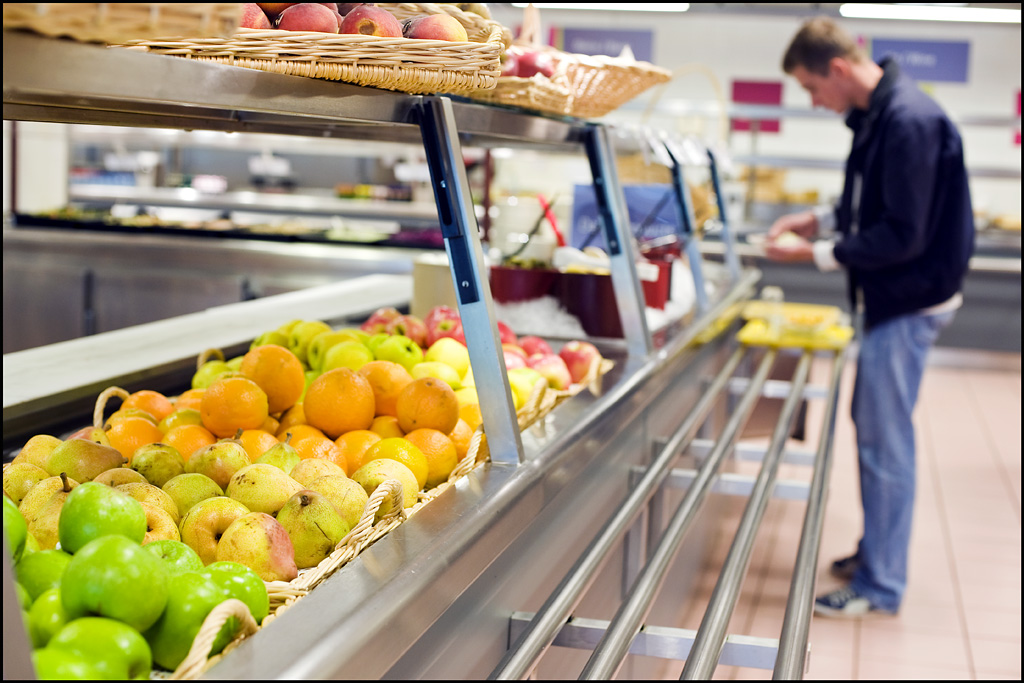Between food brands, price ranges, and flavor varieties, grocery shopping in urban areas can already be a little overwhelming. In the last decade or so, however, shoppers have been faced with yet another dilemma—the rising popularity of organic products. From fresh produce to sandwich cookies (yes, they’re real), the now-familiar “USDA Organic” labels can be found on store shelves across the nation, leading many people to wonder if the health benefits of buying organic are really worth the added cost.
The term “organic” tends to be very loosely defined, further complicating the organic versus conventional debate. According to MayoClinic, “organic” processing most commonly includes practicing sustainable farming techniques, raising livestock without antibiotics or growth hormones, and producing crops free of synthetic pesticides. Thus, everything from fruits and vegetables to grains and eggs can be produced organically.
Image source: Betsie Van der Meer
To regulate the organic food industry, the U.S. Department of Agriculture (USDA) has very specific guidelines as to how organic products are labeled. Only foods with at least 95 percent certified organic ingredients and a remainder of additional approved ingredients are typically marked with the USDA seal. On the other hand, packaging labeled “made with organic” or “organic ingredients” are not entirely up to par and likely will not have the seal. It is also important to note that “organic” and “natural” are not synonymous. “Natural” only implies the absence of artificial ingredients, and says nothing about the means of production.
As for whether organic foods are healthier for human consumption, the research remains inconclusive. For example, one study suggests that while organic foods may be safer, due to production methods, they are not nutritionally superior. Another study refutes this idea, claiming that organic meat and dairy can contain up to 50% more omega-3 fatty acids. Since the organic industry is rather new, scientific inquiry into this field will be ongoing for years to come.
When it comes to organic foods, the one thing most people can agree on is that these products are decidedly expensive. By all means, if you can afford the cost to support sustainable processing, then buy organic. However, if you’re looking for a nutritional boost, save your money until the research can validate your skyrocketing grocery bill. For produce, you can also opt to buy from a farmer’s market or other local source to ensure quality. Remember, helping the planet doesn’t have to mean hurting your wallet.
Feature Image Source: Food rules: What’s cooking in the Parliament?by European Parliament










